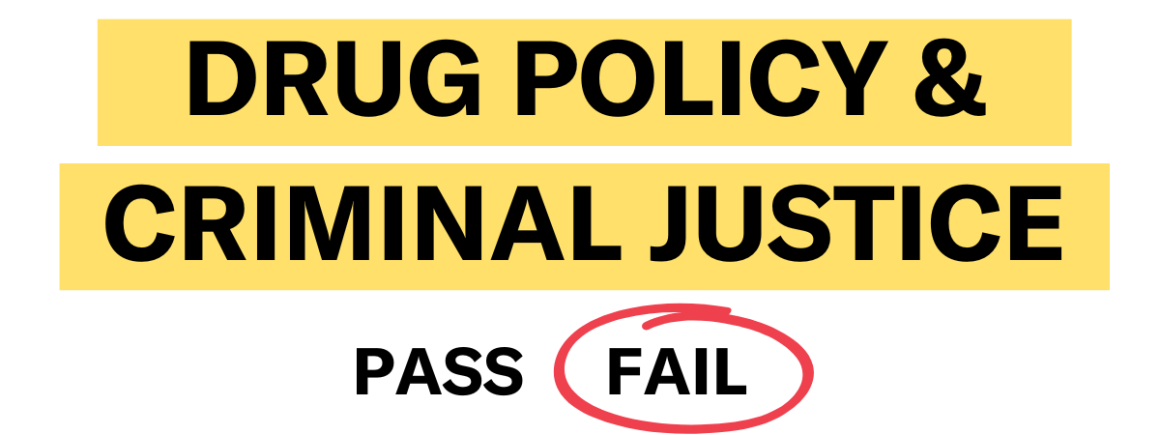The ACLU defends the rights and liberties of everyone who calls Vermont home. This report card assesses the civil liberties record of Governor Phil Scott on a pass/fail basis over his current two-year term, 2023-24, looking at a range of public policy choices that impact Vermonters’ rights and liberties statewide.
While his track record in prior terms has been mixed, Governor Scott’s policies and positions over the past two years have proven increasingly hostile to Vermonters’ civil liberties, as well as the needs and values of Vermont families and communities.

The ability to access housing is fundamental to the enjoyment of civil liberties and full and free participation in our society. Under Governor Scott, Vermont now has the second highest rate of homelessness in the country and faces an affordable housing crisis that will take years to reverse.
In 2023, amid a historic housing crisis, the governor sought to forcibly un-shelter hundreds of Vermonters — children, families, seniors, and people with disabilities. This year, the administration has displaced scores of people while enacting cruel and arbitrary barriers to undermine the legislature’s emergency housing program and prevent people with disabilities and other vulnerable Vermonters from accessing shelter.
This winter, the Scott administration provided four short-term overnight group shelters for evictees that were haphazardly appointed, remotely located, and in one case lacked indoor bathrooms. Unsurprisingly, they were barely used; at one location, not a single person showed up.
Referring to these barren state-run facilities, Scott said, “We didn’t have to do anything.” When it comes to supporting our most vulnerable neighbors, most Vermonters disagree.

Amid the ongoing failures of the so-called “war on drugs,” Vermont has finally started to embrace an approach to substance use that is grounded in evidence and public health. Yet, while the number of people who have died of drug overdoses has increased dramatically during Scott’s term, he has consistently opposed harm reduction strategies that would save lives and improve community health and safety, while stoking fears about public safety in one of the safest states in the country.
The governor has doubled down on the failed strategies of the past by supporting harsher criminal penalties for drug-related offenses and undermining historic “raise the age” reform passed by the legislature in 2018.
And, while working to un-shelter hundreds of vulnerable Vermonters, the Scott administration has simultaneously been advancing costly proposals to expand Vermont's prison system rather than investing in more humane and cost-effective alternatives.

The people of Vermont care deeply about our system of public education. We want all students to receive an equitable, supportive education free from discrimination and harassment. The Scott administration is undermining these values and our system of public education itself.
While students of color, students with disabilities, and low-income students have long been targeted disproportionately for school discipline, Scott’s administration has opposed limits on “school resource officers” (school cops) and championed legislation creating “behavioral threat assessment teams” in all Vermont school districts. That law encourages police and administrators to monitor and investigate students of any age—for common, age-appropriate actions like “unusual or bizarre communications or behavior”—undermining students’ rights and threatening to compound existing disparities.
In the wake of the Supreme Court’s disastrous ruling in Carson v. Makin (2022), requiring that states that provide funding to private schools can no longer exclude religious schools from receiving public funds, the governor has offered no path forward to limit the flow of public dollars to private schools that can undermine the guaranteed common benefit of a public education for all Vermont's children.

The people of Vermont expect police to be held accountable when they violate civil rights. This biennium, less than three years after signing a proclamation for “George Floyd Remembrance Day” and committing to “continu[ing] to acknowledge systemic racism and inequality,” Governor Scott and his administration have consistently opposed meaningful police reform.
In 2023, he vetoed a law that would have prevented police from lying to children in interrogations. In 2024 his administration opposed measures to reduce overpolicing and racial bias on our roadways by limiting unnecessary law enforcement interactions.
The governor has taken no steps to address persistent racial profiling and racial disparities in the criminal legal system, which remain among the worst in the nation. His public safety “plan” announced in 2023 makes no mention of racial justice or police accountability.
With the legislature unwilling or unable to advance police reform given the inevitability of a veto, the governor bears significant responsibility for Vermont’s lack of progress on racial justice and police accountability.

When everyone’s basic needs are met, our communities and our democracy can thrive. Investing in our state isn’t just the right thing to do—ensuring that all of us can more fully enjoy our civil rights and civil liberties—it’s also fiscally responsible.
In an era of historic wealth inequality, the governor refuses to ask the wealthiest Vermonters to pay their fair share. Meanwhile, he has made misleading statements about widely popular proposed taxes on corporations and the wealthy, and claimed, without evidence or analysis, that affluent residents will flee the state.
The governor even opposes a modest tax on corporations that would help to staff Vermont’s judiciary—a position squarely at odds with his stated interest in promoting public safety, and one that threatens to undermine a pillar of democratic government, our court system.
Conclusion
As Vermont’s premier civil liberties organization, the ACLU gives Governor Scott and his administration a failing grade across the categories detailed above— homelessness, drug policy, criminal justice, education, police accountability, and economic justice.
Vermont needs leadership that will advance collaborative solutions to secure and expand the rights and liberties of everyone who calls Vermont home. We must do better. Get involved in our work at acluvt.org.
An op-ed version of the Civil Liberties Report Card was published in VTDigger on April 29. Read it here.
